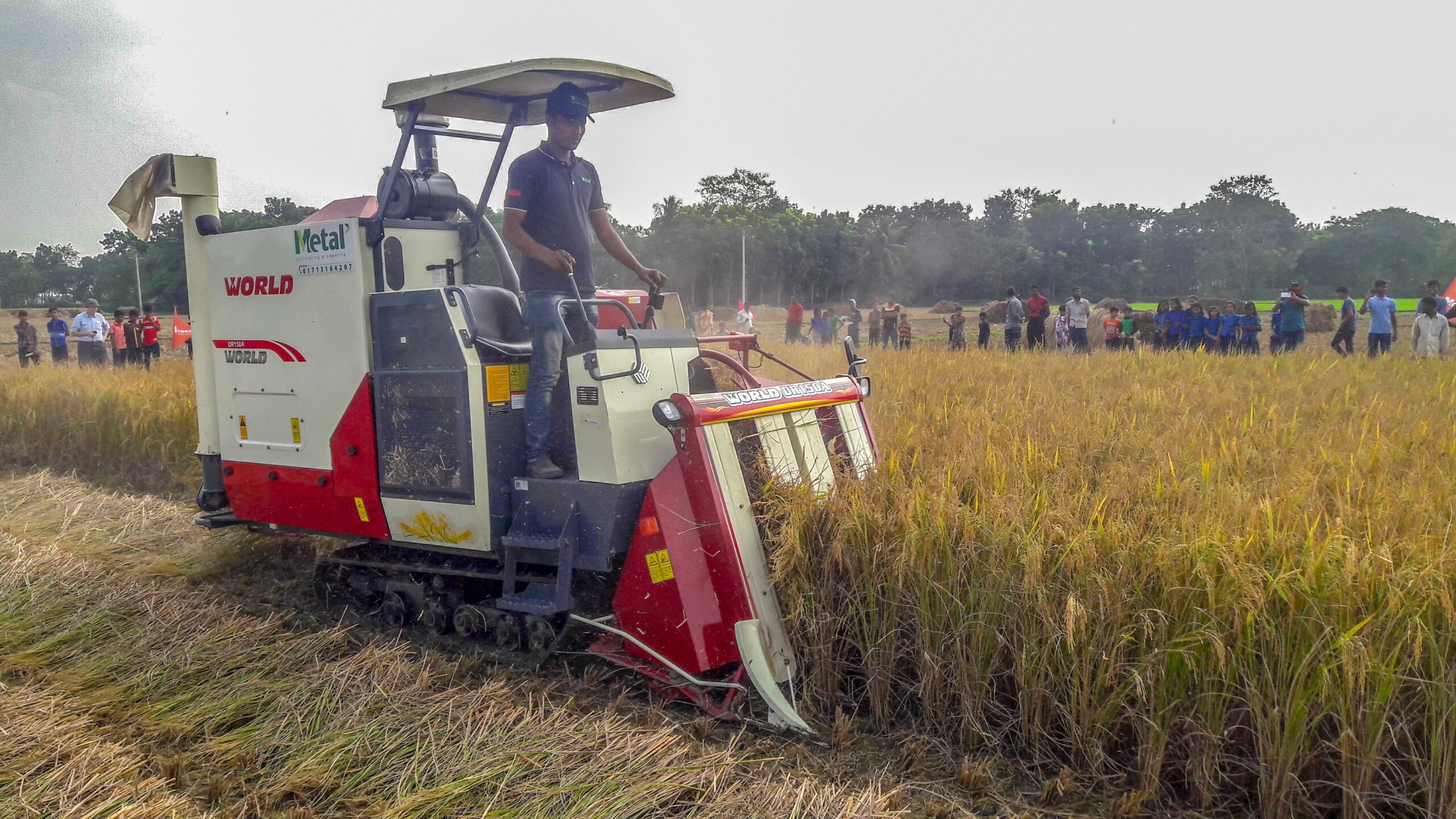
Rice is the most dominant food crop in Bangladesh. It thrives in the country’s coastal southern regions, but it can also be a fragile grain that is costly to harvest by hand. As cyclones and flooding continue to plague the south, many farmers are migrating to cities like Dhaka in search of higher incomes. Many Bangladeshis, roughly 10 million according to the World Bank, currently work abroad. The impact of this is a rising agricultural labor shortage.
Mechanized harvesting may help curb this trend. What would normally take three weeks of hard manual labor to harvest could take as little as an hour with the use of a mechanized harvester. This machinery not only saves time, but also allows farmers to prepare their fields for follow-on crops more quickly and rely less on hired laborers. However, the capital needed to access machinery prevents most from using from it.
To help farmers access time- and labor-saving technologies, the Feed the Future Bangladesh Rice and Diversified Crops Activity, funded by the United States Agency for International Development and implemented by ACDI/VOCA, is partnering with two private sector companies. Konika Seed Company, a major input supplier in southern Bangladesh, is rethinking its business model to help expand mechanization in rural areas. Konika purchased two rice combine harvesters from the machinery supplier Metal Limited with the Activity’s support and financing that Metal helped secure from the Shajalal Islamic Bank. Now, farmers who buy seeds from Konika can also rent mechanized harvesters.
“It used to take us days to harvest my rice. . . . Now, with the help of the machine, I can harvest my entire field in a matter of few minutes.” — Afsar, a local rice farmer
Konika partnered with the Activity to offer an incentive program, through which 1,660 contract farmers receive a 30 percent discount on inputs if they purchase mechanized harvesting services. Farmers also receive a 10 percent discount on those services if they sell 1,000 kilograms of their harvested rice to Konika. This customer-oriented marketing strategy incentivizes farmers to invest in high-quality seeds and mechanization. As their productivity improves, so will their profits, ensuring a long-lasting relationship between Konika and farmers. During the 2019–2020 season, Konika plans to distribute seeds to 16,000 farmers.
Through a similar agreement with the Activity, Metal is also providing technical support to other trades, including mechanics and drivers, who help ensure the machinery can be operated effectively in rural areas. This is lowering the risks and barriers of entry for those involved in Metal’s plans to move forward with its franchised local service provider model.
“Previously, we had no idea about the value of combine harvesters for rice farmers. [The Activity] showed us the potential of using combine harvesters and the profit that comes with it. [W]e plan to buy five to six machines in the future to expand our business.” — Noor Alam Liton, managing director of Konika Seed Company
Rice farmers with access to these machines could lower their labor costs by 50 percent and increase their gross margins by nearly BDT 9,500 (USD 133) per harvest. This is partially because mechanized harvesters both cut and thresh the rice, meaning farmers can bag the rice in the field, instead of transporting it home for threshing.
With both companies poised for growth, their new business relationship has the potential to make inputs and mechanizations more affordable and accessible to rural farmers. These farmers in the Feed the Future zone stand to gain not only higher yields and food security, but also a time-saving solution.








